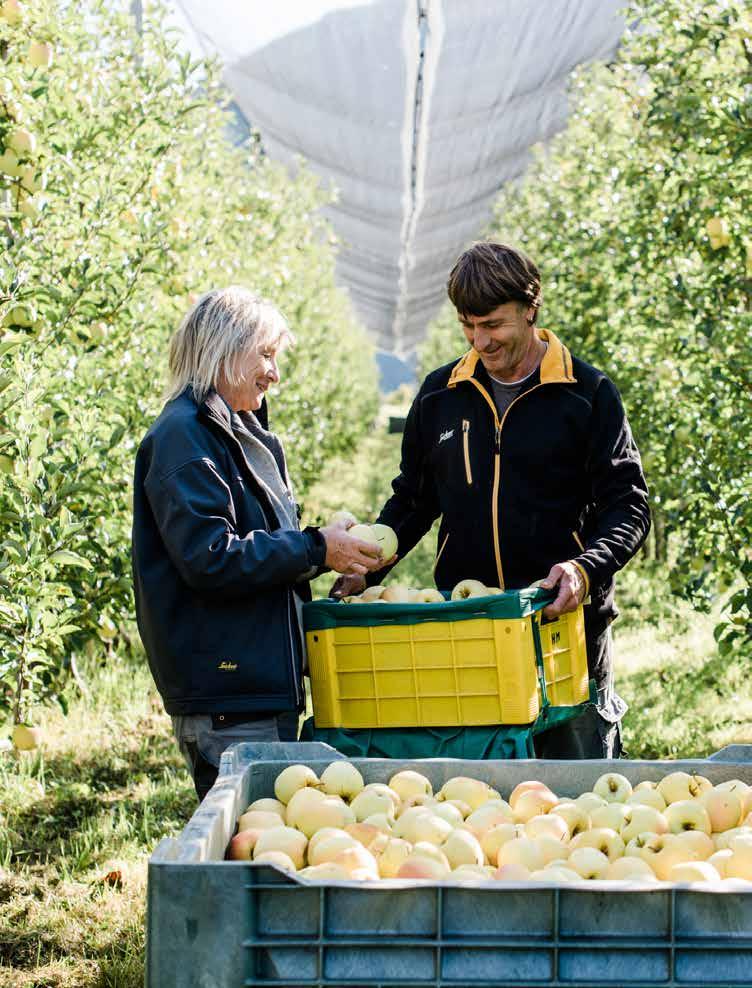
2 minute read
Questione di cifre Numbers, please
1
2
3
La mela The Apple
Mitologia Nessun c‘è frutto più leggendario della mela: gli uomini hanno perso il paradiso biblico per una mela; gli dei nordici hanno mangiato mele d‘oro per ringiovanire; l‘aldilà dei Celti si chiamava Avalon, ovvero „paese delle mele“; il vincitore dei pri- mi Giochi Olimpici ricevette in premio una mela e la mela imperiale è diventata il simbolo del potere assoluto. Mythology No fruit is as legendary as the apple: mankind lost the biblical paradise by an apple, the Nordic gods ate golden apples to rejuvenate themselves, the Celtic beyond, „Avalon“ means „apple country“, the winner of the first Olympic Games received an apple as prize and the imperial apple became the symbol of absolute power.
Clima Il particolare microclima rende l‘Alto Adige naturalmente adatto alla coltivazione della mela: l‘altitudine ottimale, il clima asciutto e non troppo caldo e, soprattut- to dalla fine dell‘estate, le forti escursioni termiche tra il giorno e la notte garanti- scono una polpa croccante e un bel colore rosso. In Alto Adige, le mele vengono raccolte solo quando sono completamente mature. Climate The special microclimate predestines South Tyrol for apple cultivation: optimal alti- tude, dry, warm, but not too hot, and especially from late summer high temperature fluctuations between day and night, which ensure a crisp fruit flesh and beautiful red color. In South Tyrol, apples are only harvested when they are fully ripe.
Fiori di ghiaccio e reti antigrandine Non c‘è professione che come quella dell‘agricoltore dipenda dal volere della na- tura. Particolarmente temute sono le gelate in primavera e la grandine in estate. Gli agricoltori cercano quindi di proteggere le loro colture irrigando in occasione delle gelate primaverili, in modo da avvolge i delicati fiori del melo con un sottile strato di ghiaccio e quindi, paradossalmente, proteggendoli dal freddo. Laddove possibile, si installano temporanee reti antigrandine. Ice Blossoms and Anti Hail Nets Like no other, the farmer is dependent on nature in his profession. Frost in spring and hail in summer are particularly feared. These weather events can have a fatal and lasting effect on the crop yield for the year. Farmers therefore try to protect their crops: Frost irrigation in spring wraps the sensitive flowers in a thin layer of ice and thus – paradoxically – protects them from the cold. Where possible, hail nets are temporarily set up against hail.










